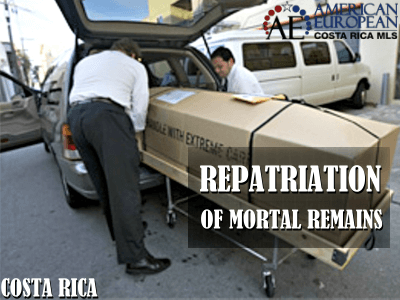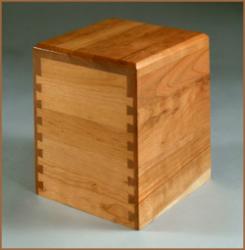 Do you need the repatriation of a deceased family member? Most of us don’t want to hear this kind of information. But when you plan to live in Costa Rica, getting information about Costa Rica residency and Costa Rica real estate is not enough.
Do you need the repatriation of a deceased family member? Most of us don’t want to hear this kind of information. But when you plan to live in Costa Rica, getting information about Costa Rica residency and Costa Rica real estate is not enough.
When you read this article, do not call us to take care of the remains of your beloved ones. We are a real estate MLS, not a funeral home. If the deceased owns a property in Costa Rica that needs to be sold or rented, we can assist. We have the solutions for you.
Repatriation is sometimes a must, especially if all the family lives elsewhere. In other blogs, I have already covered the explanation why you need a will in Costa Rica if you have any assets here. And in another blog, I have covered cremation in Costa Rica. You also might find our article about Funeral homes and Cemeteries useful.
The embalming of the body is not customary in Costa Rica. But in case of the repatriation of the remains, it is necessary. Because we are in the tropics, cremation or burial usually is done the next day. Unless the Judicial Morgue holds the body longer in custody, mostly when there is suspicion of a crime.
When you want the repatriation of the body of your loved one and you are looking information, you need to read on.
If there is doubt and the doctor who declares the cause of death believes the deceased did not die by natural causes, the body will be transported to the Judicial Morgue Complex. This morgue is located in the Forensic Sciences in San Joaquin de Flores and handles forensic evaluations.
If the deceased died of natural causes, the funeral or cremation happens normally immediately the day after  death.
death.
The identification of the deceased
The identification and labeling of the deceased are one of the first tasks carried out in the Judicial Morgue. The Judicial Morgue has streamlined delivery processes of the bodies to the families.
These processes range from the scene of the incident until the autopsy and getting the deceased dressed. The response time to hand over the body to the family is between seven hours and a maximum of two days. That makes it impossible for a quick repatriation of the deceased.
For information about the release of the deceased from the Judicial Morgue, download the map with all the pertinent phone numbers.
Documents needed
There are a few funeral homes who can attend you in English. That allows you to not have to pay a translator to get you through the process. For the repatriation of the body or the ashes, you need some documents. Although your funeral home will assist you with all these documents:
a) A death certificate by a Costarican doctor showing the cause of death.
b) A statement by a person authorized to prepare the body. This states the manner and method in which the preparation took place, certified by a competent authority.
c) An affidavit that the urn or casket contains only the remains of the deceased.
d) A transit permit that shows the name and age of the deceased. This permit has to be expended by the competent authority of the place where the death or the burial in case the remains in question were exhumed occurred.
e) The transfer of the body will have to be accompanied by a copy of the documentation listed in a), b), c) and d). The coffin will have to be identified by an external immovable tag or any other visible instead stating name, age, sex and place of final destination.
f) The body must be properly embalmed and placed in a sealed waterproof coffin.
Your Embassy’s help
 The Consular officers at your country’s embassy will provide assistance when a foreign citizen dies in Costa Rica.
The Consular officers at your country’s embassy will provide assistance when a foreign citizen dies in Costa Rica.
The degree and nature of consular assistance depend upon whether
- the deceased was accompanied by family,
- whether s/he was a visitor to Costa Rica,
- or was residing here.
Contact your embassy for even more complete information if you need assistance in the repatriation of a deceased.
US citizens can get more info at the US Embassy’s Consular services in San Jose: 506-2519-2453 or 506-2519-2093, Monday through Thursday, from 8:00 AM to noon and 1:00 PM to 4:30 PM, and Friday from 8:00 AM to 12:00 PM.
For after-hours emergencies, please call (506) 2519-2000.



















